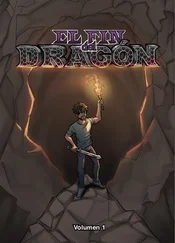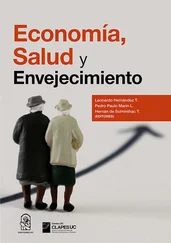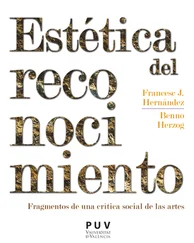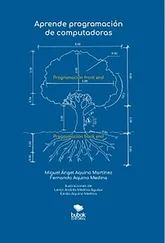Still holding the knife, I reached into my pocket for my phone, where Madeline’s name was in my speed-dial menu. Madeline would know what to do. She hated blood. She hated anything that hurt people — animals too. She always tried to be vegetarian, and would succeed for a few weeks only to be tempted by foie gras or some other “irresistible” favorite.
The screen read MADELINE DUPRE.
The letters of her name were as meaningless as those on a label for canned ham. I couldn’t call her, I just — couldn’t. What would I say? And what would she say? And she’d be busy anyway.
The phone sort of tumbled out of my hand, clattering to the tile floor at my feet. I was too paralyzed to pick it up. In the back of my head, I thought of something I had heard once, either in real life or on the Internet: “All you need to do to be happy is to start smiling. Just lift up the corners of your mouth, and that’s it, you’re happy.” It seemed like as good an idea as any — I mean, what did I have to lose? — but trying just made the corners of my mouth quiver. I closed my eyes. When I opened them, I wasn’t smiling but I wasn’t frowning either, because I couldn’t feel my face at all.
I started thinking about all the sad characters I knew from books. I thought of Esther from the The Bell Jar , and how she had dealt with things, but then I couldn’t remember if she had gotten better or if she had just killed herself by the end of the book. That made me think of the boy from Brave New World , who definitely did kill himself by the end — he hung himself, which was too horrifying a notion to even momentarily entertain — and Romeo and Juliet, and Ophelia, and pretty much everybody in Shakespeare. Now that I really considered it, everybody sad in great literature seemed to kill themselves by the end. It was, like, the only thing to do.
To my blood’s relief, I put down the knife on the edge of the sink, then I rifled through the medicine cabinet as I had done before. If I truly wanted to kill myself, I could swallow more than just aspirin. Not that I wanted to, but — if I did want to, I could basically eat everything that was in there. Surely, something would have to happen. A person just couldn’t mix up all those chemicals in his body and not have something happen to him, right?
I began to line up all the bottles, just to see —just in case, one day, I went through with it. Just in case I ever wanted to go through with anything . The most powerful thing I recognized was Midol. I began pouring out the pills from every bottle — one after the other along the edge of the sink — and then my roommate Veronica knocked on the door.
“Ethan?” she asked. “I’m sorry, do you think I can take a shower? I’m meeting Jonathan for dinner in an hour, and I’m so gross from all this heat.”
I didn’t answer at first. I just stared at the trail of pills I had made — little droplets the color of bone and oleander and cloudy skies. My favorite ones were the faint purple of a fresh bruise, and they cured indigestion.
“Ethan?”
“Hi,” I croaked. I cleared my throat. “Yeah — sure,” I said. “Give me — two minutes?”
I poured them all back into the Midol container and stuck it in the cabinet, tossing the empty containers in the trash. Reconsidering, I scooped up all the bottles and returned them to the shelf, empty.
Then I tucked the paring knife in a groove beneath the medicine cabinet and went upstairs to sleep.
THE NEXT DAY DORIAN WAS WEARING A BASIC GRAY T-SHIRT from Alexander Wang.
“What a great shirt,” Edmund said to him, as he trotted past in a head-to-toe zebra print ensemble, including black-and-white zigzag pony-hair shoes. Fresh from a vacation in Majorca, he was in fine spirits, having just made a lavish fuss over some “missing” zebra cufflinks.
If before I had feared that Edmund might start to favor Dorian by giving him assignments, the truth was worse: He started to favor Dorian while still giving me the assignments.
“Ethan, I need you to do some research for me. A very special assignment. I’m sure you will enjoy it. Wish I could do it myself,” he briefly entertained, “but you know, there’s never any time. I’ll need every instance of Spanish influence you can find in the work of Oscar de la Renta between 1950 and 1970. Go through all the archives and make copies of every example there is, even advertisements, and don’t leave anything out,” he instructed before warning me, “I’ll be able to tell if you skipped over any parts.”
“Okay,” I helplessly agreed. “When do you need this by?”
“Tomorrow morning, first thing please,” he said as he tried to grab at something on his tongue — a hair, perhaps, from his own shoe.
I grimaced. Edmund had already assigned me another project for “tomorrow morning, first thing please,” involving the arbitrary reorganization of his portable music library to reflect a chi -enhancing suggestion in his feng shui book. “Honestly I don’t know if all that will be possible before tomorrow,” I said. “Jane’s trunks are being shipped out tonight, and I’ve already got your music library before—”
The slamming door cut me off.
“Do you need any help?” Dorian asked, as he sipped a juice box and came up with a poem for the back of his lunch receipt. I smoldered silently at his stupidity. “How far have you gotten with the music library?” he asked. Dorian had always feigned ignorance of flourishing hostilities, believing that with a fumigatory smile they would shrivel like a weed and cease to encroach on his good spirits. This was one thing about him that had infuriated Madeline, who loved to water any cracks in the ground with her full attention.
“It’s fine,” I said. I would sooner die of exhaustion in that bleak office than ever accept Dorian’s help.
“We only lend out two at a time, sweetheart,” the librarian notified me as I stood at the checkout counter buried behind a wall of brick-like archival books. Her white bob peeked over the top: “I suppose I can let you take three, but you’ll have to put some of these back.”
“It’s for Edmund Benneton,” I explained.
“Oh, I’m sorry, dear,” she said. I couldn’t be sure if the apology was for not realizing I worked for Edmund, or because, as someone who worked for Edmund, I just deserved one. She pointed to a glass dish full of candies on the checkout counter, and offered up a wan, conciliatory smile. “Here, have a gumdrop.”
With each year broken up into four volumes, twenty years of Régine was eighty volumes in total — about two shelves’ worth of hardcover books, and a great deal for the librarian to part with. With some reluctance, she let me pile up a rolling cart — and, after helping me and my perilous tower onto the elevator, waved regretfully at me as the doors closed between us.
When Dorian and Sabrina had left the closet for the day (“ Good luck! ” he said. “ Don’t touch anything,” she said), I was still combing through 1952. It turned out Oscar de la Renta’s repertoire contained more instances of Spanish influence than the King of Spain’s bedroom; by the time I was finished with a volume, the sides were fringed with stickies.
At about 1956, the nighttime cleaning lady came around, wearing a mint-green uniform dress with a Peter Pan collar. For someone charged with taking out the trash, she was quite exotic — tall like an Indian palm tree, with olive skin and grape-colored lips — and I took a momentary break to wonder if at Hoffman-Lynch even janitors had an advantage if they were beautiful. Pushing a cart full of cleaning supplies, she swayed around replacing all the trash bags so that in the morning they could get stuffed again with coffee cups and yesterday’s trends. She eventually waved good-bye, like an Arabian princess boarding her jet for the next stop on a world tour, and by 1959 it became clear I wasn’t going home that night. To flip through a single year of Régine —including features, fashion editorials, and endless advertisements — took about half an hour, if I did it fast. I had no choice but to turn every page. From the impeccable lists he kept in his diaries, I knew Edmund would notice if I had skipped something. If I neglected so much as a single “imperative” moment — a flamenco-inspired swimsuit in July 1964, a matador cape in August — he could easily turn his full attentions to Dorian.
Читать дальше












